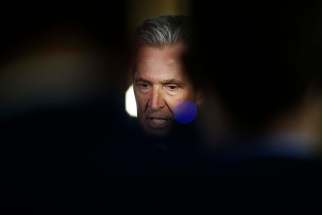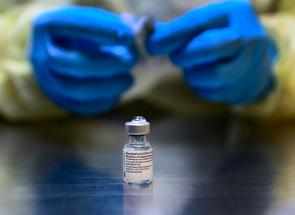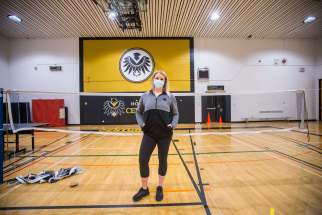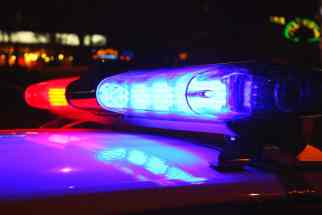Get a COVID vaccine, win a TV! Some First Nations offering door prizes in effort to coax reluctant residents to roll up their sleeves before doses expire
Read this article for free:
or
Already have an account? Log in here »
To continue reading, please subscribe:
Monthly Digital Subscription
$0 for the first 4 weeks*
- Enjoy unlimited reading on winnipegfreepress.com
- Read the E-Edition, our digital replica newspaper
- Access News Break, our award-winning app
- Play interactive puzzles
*No charge for 4 weeks then price increases to the regular rate of $19.00 plus GST every four weeks. Offer available to new and qualified returning subscribers only. Cancel any time.
Monthly Digital Subscription
$4.75/week*
- Enjoy unlimited reading on winnipegfreepress.com
- Read the E-Edition, our digital replica newspaper
- Access News Break, our award-winning app
- Play interactive puzzles
*Billed as $19 plus GST every four weeks. Cancel any time.
To continue reading, please subscribe:
Add Free Press access to your Brandon Sun subscription for only an additional
$1 for the first 4 weeks*
*Your next subscription payment will increase by $1.00 and you will be charged $16.99 plus GST for four weeks. After four weeks, your payment will increase to $23.99 plus GST every four weeks.
Read unlimited articles for free today:
or
Already have an account? Log in here »
Hey there, time traveller!
This article was published 30/03/2021 (1718 days ago), so information in it may no longer be current.
Some First Nations bands are offering TVs and iPads as door prizes in an effort to get people on reserves to roll up their sleeves and get a COVID-19 vaccine injection.
“People sometimes don’t do anything unless they’re given something,” said Peguis Chief Glenn Hudson, whose band is raffling off a barbecue.
“This is a health issue, and a pandemic issue, but sometimes people don’t act.”
First Nations qualify for vaccination at ages two decades younger than other Manitobans, in recognition of a substantially higher COVID-19 hospitalization and death rates. And the military is helping fast-track a push to offer shots to the majority of adults in remote communities.
But a mix of vaccine hesitancy, success in keeping the coronavirus at bay and logistical hurdles are all adding to an already complex rollout.

“It’s like the general population; people do have their skepticism about being vaccinated, and we’re trying to educate them and achieve herd immunity in our community,” said Hudson, who says about 45 per cent of Peguis’s on-reserve adult population has received their first of two doses.
Indigenous leaders have repeatedly cited historical and current abuses by Canadian health-care systems for seeding mistrust in vaccines, an issue that hampered Manitoba’s rollout of H1N1 flu vaccinations in 2009.
Hudson said he’d normally avoid the flu shot, but got both influenza and COVID-19 vaccines this year.
“I (still) always believe in our holistic and traditional ways, but this time, with the effects of how COVID-19 can affect you, I made the choice to take it,” he said.
He also said Peguis, located about 200 kilometres north of Winnipeg, might be a victim of its own success in keeping case numbers low, with strict protocols that prevented large outbreaks, which means many residents haven’t seen, first-hand, just how severe COVID-19 can get.
“The concern that I have is whether the communities will be able to utilize all the doses within the time period that allows once the clock starts ticking.” – Alex McDougall, head of the Four Arrows Regional Health Authority
In other communities, it’s a question of logistics; vaccine manufactured by Moderna is scheduled to expire about four weeks after it arrives at a reserve.
The four remote reserves of the Island Lake region have a lot going on — containing outbreaks, monitoring winter roads and catching up on medical needs that emerged when cases were so bad that the military was called in twice.
“The concern that I have is whether the communities will be able to utilize all the doses within the time period that allows once the clock starts ticking,” said Alex McDougall, head of the Four Arrows Regional Health Authority, which serves the area.
“If they can’t, then we’ve got to come up with a plan on how we’re going to use the surplus doses.”
The group’s Winnipeg office already conducts rapid testing and other medical services for the thousands of members of the four Island Lake bands living in the city, some of whom lack health cards or other identification required at vaccine sites. McDougall has asked Ottawa to have some of the bands’ vaccine quota shifted to the Winnipeg office.
“There are a lot of barriers for urban First Nation members, that I think would benefit from that idea,” he said.
Vaccinations are going smoothly so far in Cross Lake, where officials are also offering prizes to get more people to sign up.
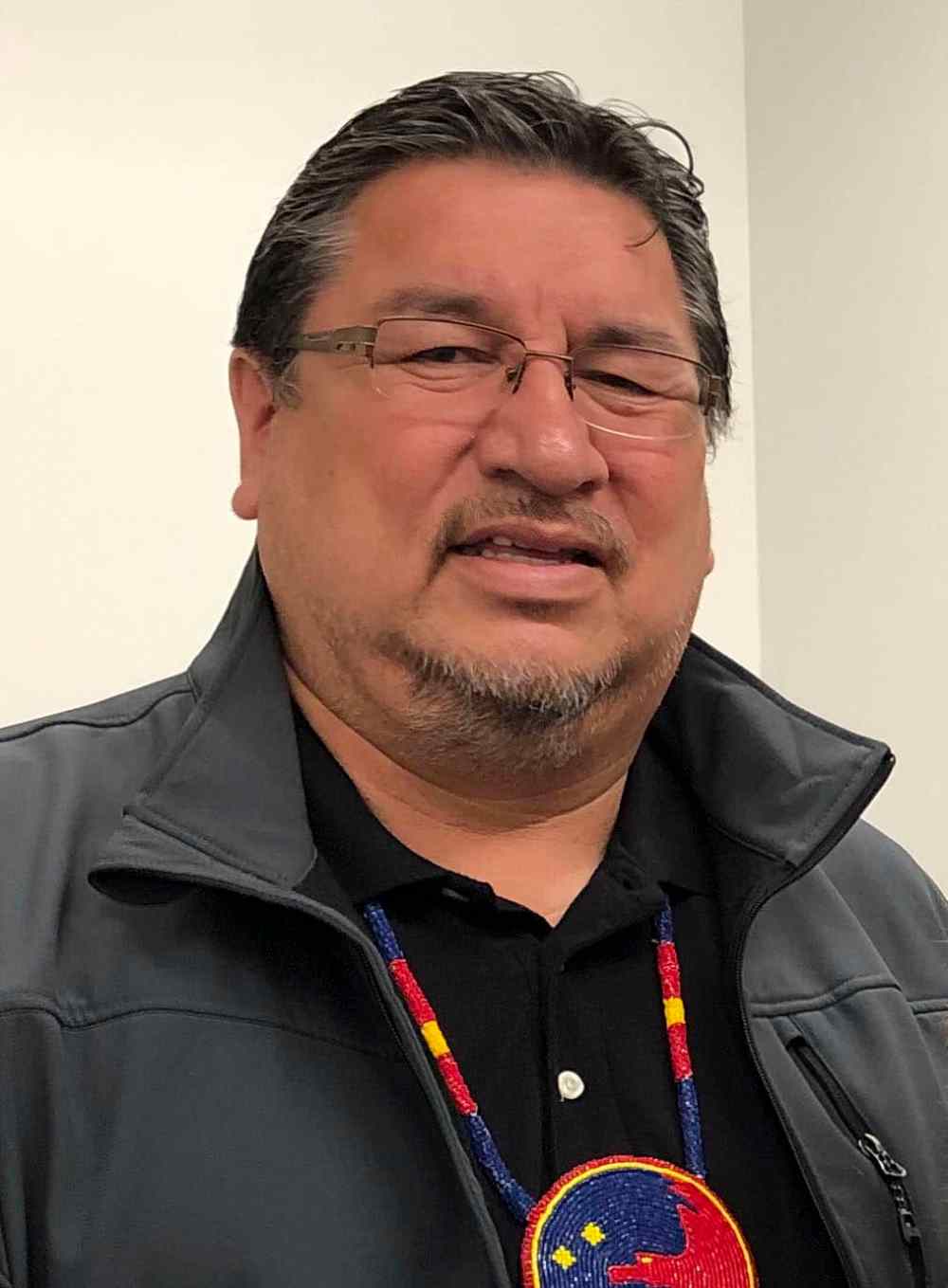
“It does make people come, but most people came and expressed an interest in getting the vaccine, so they can help our community to open up and loosen restrictions,” said Chief David Monias, whose community is locally known as Pimicikamak.
“That’s the main message we’ve been receiving,”
The reserve is using the local hockey arena as its vaccination facility, but on a compressed schedule. That means administering approximately 550 doses in a single day; freeing up nurses to deal with other health-care needs.
Nearly two dozen people from federal and provincial agencies arrived to help administer more than 2,000 doses over the course of five days. Now local nurses are set to administer 700 doses on their own, primarily to residents with various medical issues who need additional monitoring.
Like Peguis, Cross Lake is offering doses to anyone who interacts with people on the reserve, such as RCMP officers and workers living in adjacent communities.
“We’re all family here; we’re all friends and neighbours and we have to protect our community the best we can,” Monias said.
Nisichawayasihk Chief Marcel Moody told CBC News that his community, near Thompson, had administered only 230 doses in the first two days of its clinic, despite advance registration efforts.
Nisichawayasihk is allowing band members who live off the reserve to visit for vaccinations through a separate process that avoids contact with local residents. Moody said that leaves about 1,350 doses to be administered in the community of about 2,300 adults, but he said he’s concerned about using the existing supply before it expires in two weeks.
Melanie MacKinnon, the co-chair of the First Nations Pandemic Co-ordination Response Team, said that won’t happen.
“There are contingency plans in place, but (Nisichawayasihk is) only a couple days in, and they experienced a significant snowstorm,” MacKinnon wrote.
“We will continue to promote the vaccine and assist all communities in additional and factual communications.”
dylan.robertson@freepress.mb.ca


